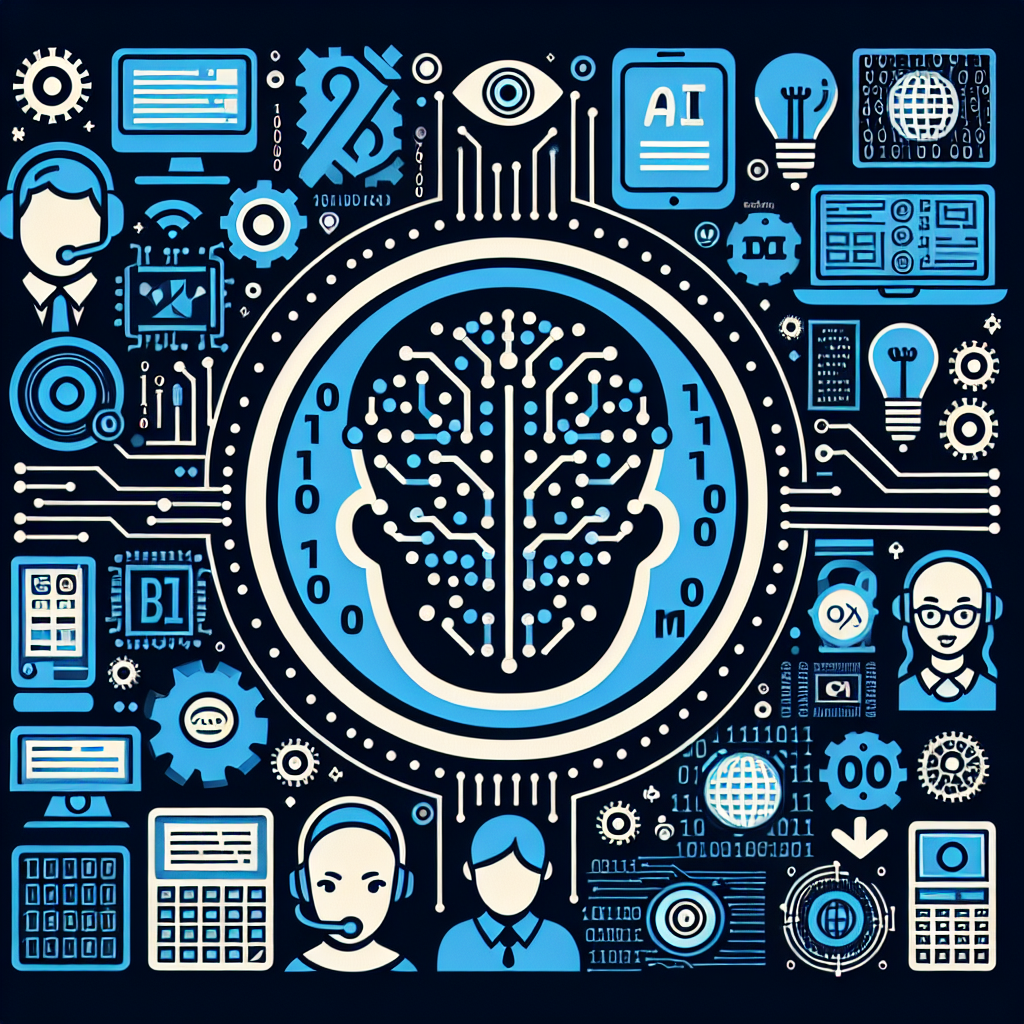The Impact of AI on Customer Service Training and Development Programs
In recent years, artificial intelligence (AI) has been revolutionizing the way businesses operate, particularly in the realm of customer service. Customer service training and development programs are essential for ensuring that employees have the necessary skills and knowledge to provide excellent customer service. With the advent of AI, these programs are being transformed in new and innovative ways.
AI technologies such as chatbots, virtual assistants, and predictive analytics are being used to enhance customer service training and development programs. These technologies are able to automate repetitive tasks, provide real-time support to employees, and analyze data to identify trends and patterns in customer interactions. This allows companies to create more personalized and efficient training programs that are tailored to the needs of each individual employee.
One of the key benefits of incorporating AI into customer service training and development programs is the ability to provide real-time feedback and support to employees. Chatbots and virtual assistants can be used to simulate customer interactions and provide instant feedback on performance. This allows employees to practice their skills in a safe and controlled environment, without the fear of making mistakes in front of customers. AI can also provide personalized training recommendations based on an employee’s performance and learning style, helping them to improve their skills more quickly and effectively.
Another way that AI is impacting customer service training and development programs is through the use of predictive analytics. By analyzing data from customer interactions, AI can identify patterns and trends that can be used to improve training programs. For example, AI can identify common customer complaints or issues and create targeted training modules to address these areas. This allows companies to focus their training efforts on the most important and relevant areas, leading to more effective and efficient training programs.
AI can also be used to create more engaging and interactive training experiences for employees. Virtual reality (VR) and augmented reality (AR) technologies can be used to simulate real-life customer interactions and provide employees with hands-on experience in a virtual environment. This type of training can help employees to develop their skills more quickly and effectively, as they are able to practice in a realistic and immersive setting.
In addition to improving the quality of customer service training and development programs, AI can also help companies to reduce costs and increase efficiency. By automating repetitive tasks and providing real-time support to employees, AI can help to streamline training processes and reduce the amount of time and resources required to train employees. This can lead to significant cost savings for companies, as well as improved employee productivity and performance.
Overall, the impact of AI on customer service training and development programs is significant and far-reaching. AI technologies are transforming the way that companies train and develop their employees, leading to more personalized, efficient, and effective training programs. By incorporating AI into their training programs, companies can improve the quality of customer service, reduce costs, and increase employee engagement and performance.
FAQs
1. How can AI technologies improve customer service training programs?
AI technologies such as chatbots, virtual assistants, and predictive analytics can automate repetitive tasks, provide real-time feedback and support to employees, and analyze data to identify trends and patterns in customer interactions. This allows companies to create more personalized and efficient training programs that are tailored to the needs of each individual employee.
2. What are some of the benefits of incorporating AI into customer service training programs?
Some of the key benefits of incorporating AI into customer service training programs include the ability to provide real-time feedback and support to employees, the use of predictive analytics to improve training programs, the creation of more engaging and interactive training experiences, and the reduction of costs and increase in efficiency.
3. How can AI technologies help to reduce costs in customer service training programs?
By automating repetitive tasks, providing real-time support to employees, and streamlining training processes, AI technologies can help to reduce the amount of time and resources required to train employees. This can lead to significant cost savings for companies, as well as improved employee productivity and performance.
4. How can companies incorporate AI into their customer service training programs?
Companies can incorporate AI into their customer service training programs by implementing chatbots, virtual assistants, predictive analytics, virtual reality (VR), and augmented reality (AR) technologies. These technologies can be used to automate tasks, provide real-time feedback to employees, analyze data, and create engaging and interactive training experiences.
5. What are some of the challenges of incorporating AI into customer service training programs?
Some of the challenges of incorporating AI into customer service training programs include the need for specialized skills and expertise to implement and manage AI technologies, the potential for bias and discrimination in AI algorithms, and the need to ensure that employees are comfortable and proficient in using AI technologies for training purposes. Companies must also consider issues of data privacy and security when implementing AI technologies in their training programs.

